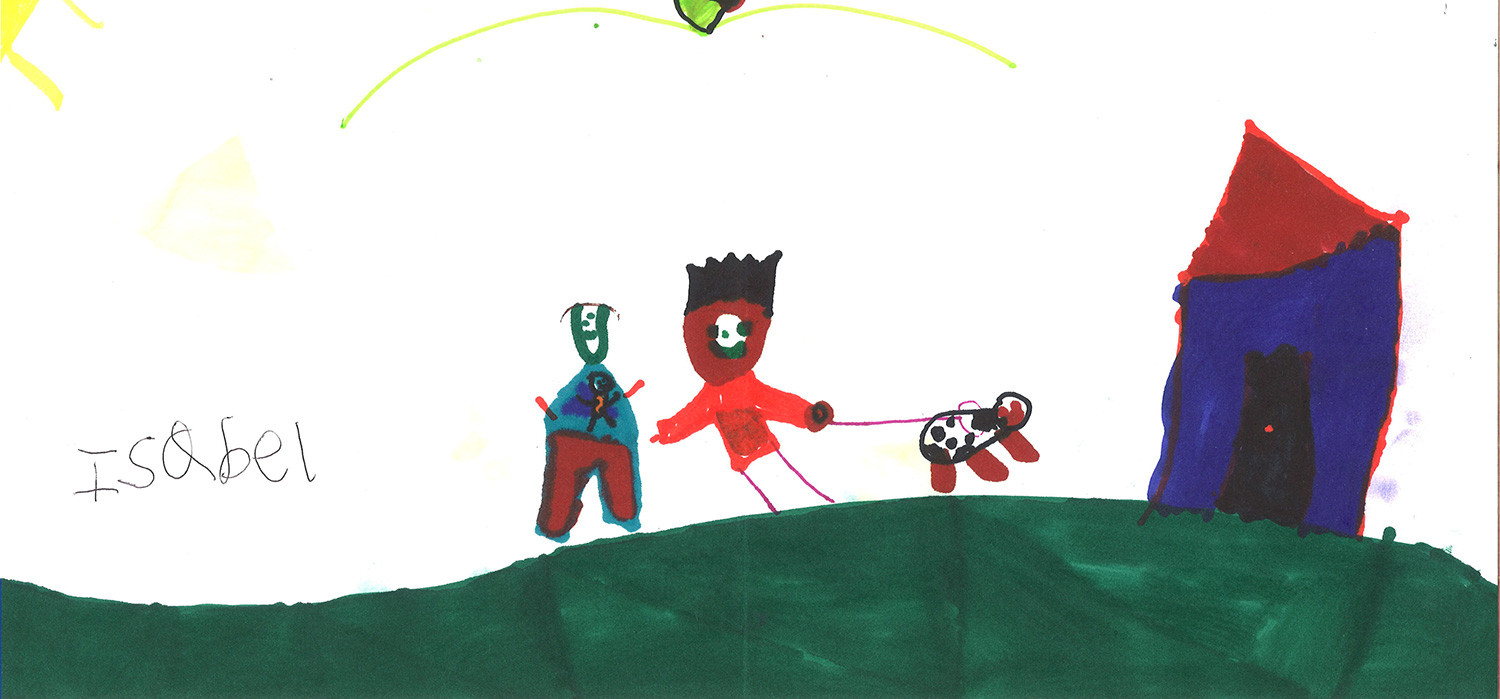When Amy found out she was pregnant during winter break of her sophomore year at college, she was ecstatic. The timing wasn’t perfect, but she was thrilled to be having a child with her boyfriend of six years.
However, her unbridled happiness didn’t last long. A nurse called Amy and asked her to come into the office and discuss test results. It was then that she learned she had been diagnosed with HIV.
“When they told me, everything just stopped.”
Amy felt panicked at the thought of dealing with HIV and the fear that she would give the disease to her child. Frightened and overwhelmed, she thought her only safe option was to terminate the pregnancy. Thankfully, she returned to the hospital to learn more about her options and possible treatment.
Wanting to seek the best possible care, Amy was transferred to a specialty HIV OB program. “I started taking my medications right away, and my viral load became undetectable.”
“I was proud of myself!”
Through a social worker, Amy was connected to a MACA case manager. “I was homeless and living at my best friend’s house. It was very emotional for me, since I didn’t know anything. All of a sudden, there was another person who could talk to me about this.”
MACA Case Manager Made the Difference
Amy soon learned that she could manage and thrive within her new circumstances despite the new difficulties and challenges. “My family doesn’t know about my situation. My mom doesn’t know anything about HIV. I’m worried that she will disown me if she found out.”
The MACA case manager worked with Amy to identify resources to address her specific concerns, including housing by encouraging Amy to reconsider living with her mom until separate housing could be found.
Amy Gets an Apartment
Through MACA’s Housing Program, Amy was set up in an apartment just two months after her baby was born. This was essential for Amy, who felt she had to hide her medication when she was living with her mother.
Amy also received a supportive grant to set up and furnish her new home, including infant necessities such as a crib, car seat, diapers and wipes.
“The whole MACA program was incredible!”
One of the most important services for Amy, who does not have a car, was the transportation services provided to and from medical appointments. “Transportation was a big deal. Once I started getting help from MACA, I was able to make it to every single appointment! It was such a blessing!”
Expanding Family Support Systems with Enhanced Case Management
The MACA case manager worked with Amy to help with disclosure and to develop her network of support. Amy’s boyfriend struggled with his own fears about HIV and ultimately, could not stay connected to Amy through the pregnancy.
She maintains the best aspect of the MACA program was her trusted and strong bond with her case manager. “She’s my role model. I can talk to her about anything!”
The MACA case managers are trained to be creative with resources, while connecting clients to necessary services. “I don’t see her as a social worker – she’s more like my family.”
Knowing she has someone on her side was incredibly important for her. When she was first diagnosed, she was dismayed and disappointed. Fearful of the reactions of those who would learn about her HIV status, she has been incredibly cautious about confidentiality.
Amy is reassured by her interactions with the incredible staff at her provider’s office and her MACA case manager. “I found out that I have extra friends in life. Now, there are more people in my corner.”
Amy is now looking towards the future. She is realistic about what it will take to be a single mom and is determined to go back to school. She is applying for scholarships and thinking hard about how she can continue pursuing her goals.
Through the love and encouragement from her friends and the support from MACA, Amy is confident that her family’s future will be bright and she will be able to overcome anything!

Comments are closed.